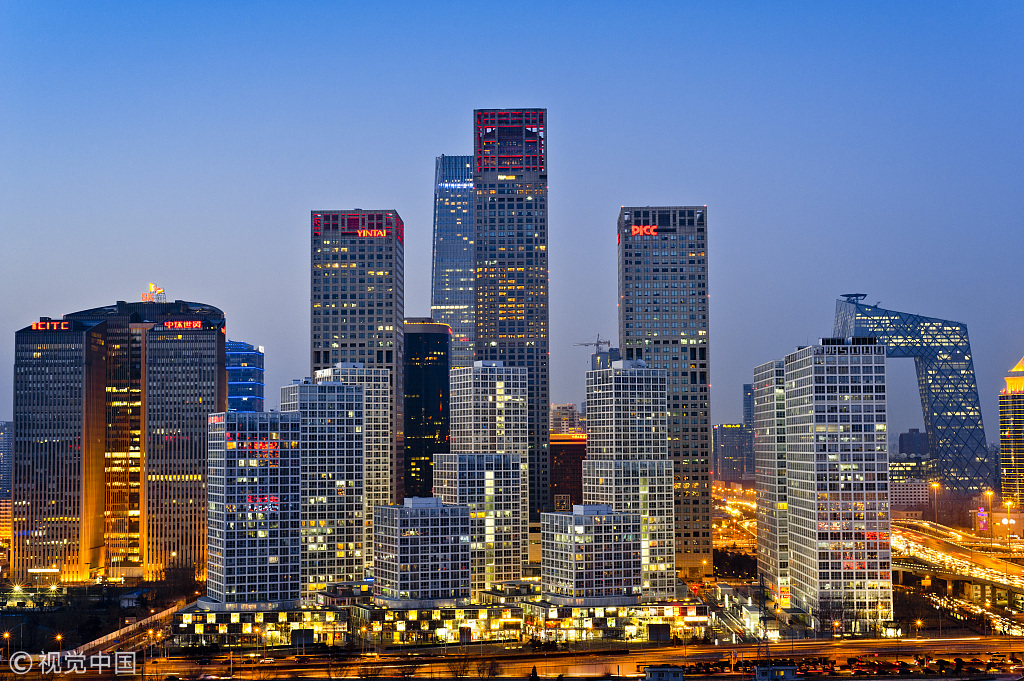Cities look to branding to stand out


The 2018 Place Branding International Forum was held from July 12 to 14 in Beijing, aiming to boost the exchange of information between the academic community and industries involved in urban planning and regional economy.
Themed "Sharing and Co-creation: the Value of a Place Brand", the forum was hosted by the Asia Media Research Center, Communication University of China, and Beijing Tsinghua Tongheng Urban Planning and Design Institute.
According to Yuan Xin, president of Beijing Tsinghua Tongheng Urban Planning and Design Institute, cities are just like humans in that they should have their own personalities. If a city has a good brand, it can enhance the its competitiveness and influence in the economy, culture, political and diplomatic fields.
Yuan said that in the past 40 years since China's reform and opening-up policy, the rate of urbanization in China has increased from no more than 20 percent to today's 60 percent.
But these achievements are more like a change of appearance of Chinese rural areas, said Yuan, adding it has triggered some issues such as the large-degree of resemblance among those villages, towns and cities.
A city's charm has no business with its size or even its economic performance. It lies in its cultural confidence. The branding of a city is also a key part of a city's core competitiveness, which should be embedded in its social, economic, cultural, historical features. Therefore, when establishing a brand for a city, a good way is to combine its goals and its own features to provide a packed solution which involves all-levels and aspects, Yuan said.
Yin Zhi, executive vice-president of the Urban Planning Society of China in Tsinghua University said at the forum that the process of urbanization in China entered an explosive period in the past 30-to-40 years. During that period, more attention has been paid to the concept of cities rather than regions.
Taking Beijing for example, the development in the different areas in Beijing varies indeed. Which means, even in the same city, the situation is uneven, Zhi said. Therefore, rather than the concept of a city, we should focus more on the concept of region, on its coordinated development among the different regions in a city. And the branding of a place and region can become a real booster for the transformation and development of its economic society.
Besides urban planning, the latest research into tourism, human geography as well as data mining made by the experts and scholars from the United States, the United Kingdom, Greece, South Korea, Thailand were also recorded at the forum.
Alexander Modiano, vice-mayor of Athens said that the construction of a city's brand should come from its reality. And it is a right of those that live in a city to be able to contribute toward its brand identity.
According to the organizer of the forum, the implementation of coordinated regional development was put forward to build up a new development concept and modern economic system in China.
The theoretical study and policy choice in the field of Chinese regional brand should keep its unique feature and urban structure, to create "networks of cities and towns based on city clusters, enabling the coordinated development of cities of different sizes and small towns," said the organizer.
On July 1, 2017, Laboratories for Regional Branding Studies was launched by Communication University of China and Beijing Tsinghua Tongheng Urban Planning and Design Institute, committed to gathering world-class think tanks and establishing a platform for research into regional branding.
Ding Junjie, director of Asia Media Research Center said that the forum is another achievement made by the laboratories and plays a key role in developing the academic advantages of the Communication University of China to better serve the new needs of the country and society.




































